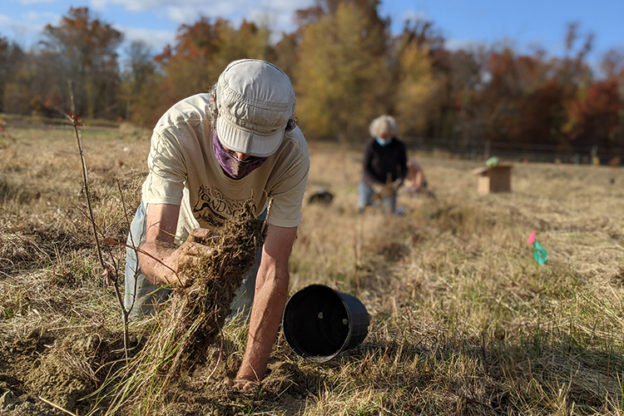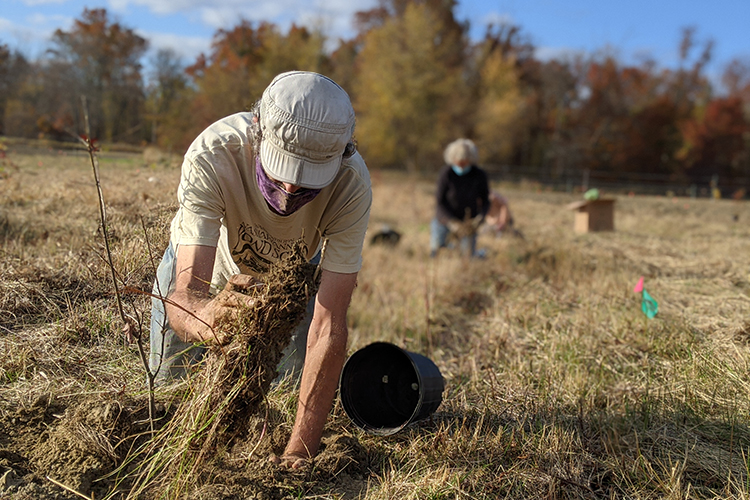
Today is Summer Camp Day of Action for Black Lives.
As a statewide conservation organization that operates 19 nature day camps and a residential summer camp serving more than 15,000 campers, we stand with our colleagues and friends in the camp world affirming that Black Lives Matter at Camp.
Nature itself is untainted with prejudice; however, too many Black and Brown community members have felt the sting of systemic racism when exploring the outdoors, connecting with and studying nature.
Designing thoughtful and impactful summer camps in nature, about nature, and for nature is core to our work and why our commitment to our summer camp program runs deep. We understand the power of camp to uplift and empower youth, families, and communities. Our camps are focused on nature, yes, and they are also about people and community.
Creating safe, welcoming, and inclusive communities for positive youth development is what camp is all about. It is our most essential work, and yet we know we need to continue to do better for all our campers.
Why? Because we know that camps are agents of change—the communities of campers, staff, and families that we build can serve as a model for the just, fair, and equitable world that our Black, Indigenous, and People of Color (BIPOC) campers and their families deserve.
We commit to creating and fostering spaces that are welcoming, equitable, and inclusive for all of our campers, staff, and families.
We pledge to cultivate an inclusive community and recognize that this work will be ongoing and ever-evolving.
What We Are Doing
- Forming a Diversity, Equity, Inclusion, and Justice (DEIJ) Camp Director Committee that works collaboratively to define the role and responsibilities of Mass Audubon camps in activating Mass Audubon’s DEIJ strategic priorities
- Providing professional development workshops for all camp staff including facilitating activities and group initiatives that build an understanding of and appreciation for DEIJ in the camp community and in life
- Celebrating the diversity of our current campership and camp staff and honoring the voices and perspective they bring to building our camp community
What We Are Committed to Doing
- Listening, learning, and acting to ensure that our nature camps are safe, welcoming, and inclusive spaces for Black and Brown campers and their families, because what happens at camp can deeply affect individuals and communities
- Working diligently to increase the representation of BIPOC staff and campers at our camps
- Fostering relationships with young people who move through our camp programs as campers to become staff and future environmental and social justice leaders
- Using our platform as the largest provider of nature-based summer camps in Massachusetts to promote diversity and inclusion and lift up BIPOC voices of our staff and colleagues who are doing inspiring and impactful work in camp and in the environmental education field.
Mass Audubon camps are committed to the learning and growth that is required to move this commitment to diversity, equity, inclusion, and justice into deeper forms of action and leadership. We know we have lots of work to do and we look forward to working with our colleagues across the nation as well as our camp families on this important work.




